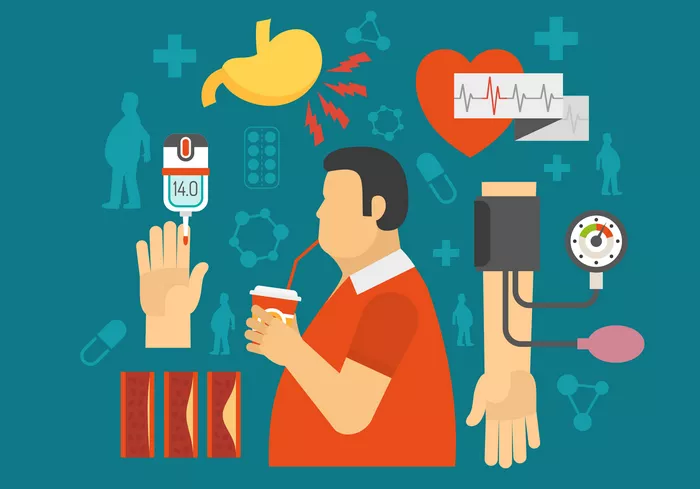In the realm of dietary debates, few topics stir as much controversy as the relationship between honey consumption and blood sugar levels. Honey, with its natural sweetness and purported health benefits, has been a staple in human diets for centuries.
However, concerns linger about its impact on glucose metabolism, particularly in individuals with diabetes or those at risk of the condition.
In this comprehensive exploration, we embark on a journey to uncover the truth about honey and its effects on blood sugar levels.
Understanding Blood Sugar Levels and Diabetes
Before delving into the specifics of honey consumption, it’s essential to grasp the fundamentals of blood sugar regulation and diabetes. Blood sugar, or glucose, serves as the primary source of energy for the body’s cells. However, maintaining optimal blood sugar levels is a delicate balance regulated by hormones such as insulin and glucagon.
In diabetes, this delicate balance is disrupted, leading to either elevated blood sugar levels (hyperglycemia) or insufficient glucose uptake by cells.
Type 1 diabetes results from the immune system’s destruction of insulin-producing beta cells in the pancreas, leading to a deficiency in insulin production.
Type 2 diabetes, on the other hand, is characterized by insulin resistance, where the body’s cells become less responsive to the effects of insulin, resulting in impaired glucose uptake and elevated blood sugar levels.
The Nutritional Composition of Honey
Honey is a complex mixture of sugars, water, enzymes, amino acids, vitamins, minerals, and antioxidants. The primary sugars in honey are glucose and fructose, which account for its sweet taste and energy-providing properties. The exact composition of honey can vary depending on factors such as floral source, processing methods, and geographical region.
One of the distinguishing features of honey is its high fructose content, which sets it apart from other sweeteners such as table sugar (sucrose).
Fructose is metabolized differently from glucose, with a lower impact on blood sugar levels due to its slower absorption rate. Additionally, honey contains trace amounts of various vitamins and minerals, including vitamin C, calcium, potassium, and antioxidants such as flavonoids and phenolic compounds.
Does Honey Raise Blood Sugar Levels?
The question of whether honey raises blood sugar levels is a complex one, as it depends on several factors, including the type of honey, individual metabolism, portion size, and overall dietary context. While honey does contain sugars that can contribute to increases in blood sugar levels, its glycemic impact varies depending on factors such as its fructose content, processing methods, and how it’s consumed.
Research suggests that honey has a lower glycemic index (GI) compared to table sugar, indicating that it produces a slower and more gradual increase in blood sugar levels. The presence of fructose, which is metabolized primarily in the liver, may contribute to this lower glycemic response. However, it’s essential to note that the glycemic index of honey can vary depending on factors such as its floral source, processing methods, and individual differences in glycemic responses.
Factors Influencing Honey’s Glycemic Impact
Several factors influence the glycemic impact of honey:
1. Fructose Content:
The higher fructose content of honey, compared to other sweeteners, contributes to its lower glycemic index and slower absorption rate. Fructose has less of an immediate impact on blood sugar levels compared to glucose, as it is metabolized primarily in the liver and does not require insulin for uptake by cells.
2. Processing Methods:
The degree of processing can affect the nutritional composition and glycemic index of honey. Raw or unprocessed honey retains more of its natural enzymes, antioxidants, and beneficial compounds compared to processed honey, which may have undergone filtration and heating.
3. Portion Size:
Like any sweetener, consuming large quantities of honey can lead to significant increases in blood sugar levels. Portion control is essential when incorporating honey into the diet, particularly for individuals with diabetes or those aiming to manage their blood sugar levels.
4. Dietary Context:
The overall composition of the diet can influence the glycemic impact of honey. Consuming honey as part of a balanced meal that includes protein, fiber, and healthy fats can help mitigate its effects on blood sugar levels compared to consuming it in isolation or on an empty stomach.
Health Benefits of Honey
Despite concerns about its impact on blood sugar levels, honey offers several potential health benefits when consumed in moderation:
1. Antioxidant Properties:
Honey contains a variety of antioxidants, including flavonoids and phenolic compounds, which have been linked to reduced inflammation, improved immune function, and protection against chronic diseases.
2. Wound Healing:
Honey has been used for centuries as a natural remedy for wound healing due to its antimicrobial and anti-inflammatory properties. Medical-grade honey, such as Manuka honey, is used in clinical settings to promote wound healing and prevent infections.
3. Cough and Cold Relief:
Honey has long been used as a home remedy for alleviating coughs and colds. Its soothing properties and ability to coat the throat may help reduce cough severity and frequency, although more research is needed to confirm its effectiveness.
4. Digestive Health:
Some studies suggest that honey may have prebiotic effects, promoting the growth of beneficial bacteria in the gut and supporting digestive health. However, more research is needed to fully understand its role in gut health and microbiota composition.
Practical Tips for Incorporating Honey Into the Diet
For individuals looking to enjoy the benefits of honey while managing blood sugar levels, here are some practical tips:
1. Choose Raw or Unprocessed Honey:
Raw or unprocessed honey retains more of its natural enzymes, antioxidants, and beneficial compounds compared to processed honey. Look for honey labeled as raw or unfiltered for maximum nutritional benefits.
2. Use Honey in Moderation:
While honey can be a nutritious addition to the diet, it should be consumed in moderation, particularly for individuals with diabetes or those aiming to manage their blood sugar levels. Stick to recommended portion sizes and avoid excessive consumption.
3. Pair Honey With Protein and Fiber:
To mitigate its effects on blood sugar levels, consider pairing honey with protein-rich foods or high-fiber ingredients. For example, drizzle honey over Greek yogurt or oatmeal, or use it as a natural sweetener in homemade salad dressings or marinades.
4. Monitor Blood Sugar Levels:
If you have diabetes or are concerned about the impact of honey on your blood sugar levels, monitor your blood glucose levels regularly to assess how your body responds to honey consumption. Adjust portion sizes or frequency of consumption as needed to maintain stable blood sugar levels.
Conclusion
In conclusion, the question of whether honey raises blood sugar levels is a nuanced one, with several factors influencing its glycemic impact. While honey does contain sugars that can contribute to increases in blood sugar levels, its lower glycemic index compared to table sugar and unique nutritional composition may offer certain advantages.
When consumed in moderation as part of a balanced diet, honey can be a flavorful addition to meals and recipes while providing potential health benefits such as antioxidant protection, wound healing support, and digestive health promotion.
As with any dietary choice, it’s essential to consider individual health status, dietary preferences, and overall dietary patterns when incorporating honey into the diet. Consulting with a healthcare provider or registered dietitian can provide personalized guidance tailored to individual needs and goals.

























